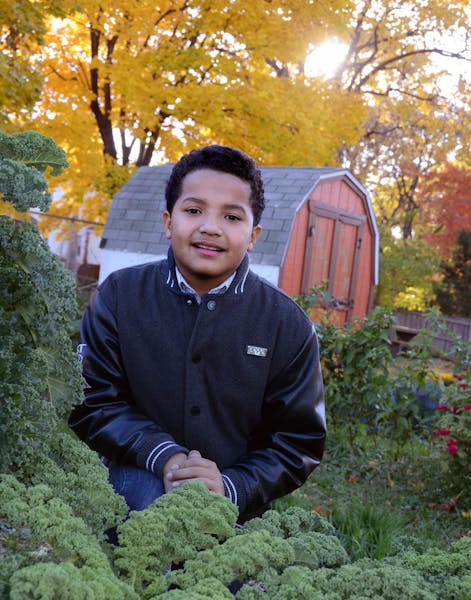It makes perfect sense when you think about it. Kids often like to garden. Fresh produce is always welcome.
Why not use kids to help vegetables grow? And, while they're at it, vice versa?
That's the idea behind Youth Farm (612-872-4226, www.youthfarmmn.org), a 19-year-old program that enlists young people, ages 9 and up, to grow, harvest, distribute and cook fresh vegetables.
"I think kids tend to be pretty curious in the garden," said Phil Rooney, director of the program's Lyndale chapter. Youth Farm harnesses that natural curiosity to produce boxes of vegetables for neighborhood families, while giving the kids an opportunity for socializing, physical activity and learning.
Sponsored primarily by corporations and foundations along with government grants and individual donors, the program involved more than 600 kids this year. It also offers a few paid internships for teenagers.
The program began in the Lyndale neighborhood of Minneapolis and has since expanded to include four additional neighborhoods in Minneapolis and St. Paul (the Hawthorne and Powderhorn neighborhoods of Minneapolis and the West Side and Frogtown neighborhoods of St. Paul). Each neighborhood chapter maintains several small community gardens within walking distance, 15 in all.
Among them, they produce thousands of pounds of food each year (3,000 pounds at the Lyndale program alone, for example). The vegetables get distributed among the families of the program participants. Extras go to others in the community, usually without charge.
The kids also use the food to prepare group meals for their families and community members. At the end of the growing season, they celebrate with a big harvest party to which they invite hundreds of neighborhood residents.
They also throw in some activities just for fun. "Kids don't want to come if all you do is farm," Rooney said.
The vegetables are not officially certified organic (a designation that requires working through some complicated bureaucracy), they're grown by sustainable methods without chemicals.
"That it's fresh and healthy is the big piece with us," Rooney said.
Along the way, the kids learn the value of community service, and — perhaps even a harder lesson to teach at that age — the value of vegetables.
"If you've grown it, harvested and cooked it, you might find you like it more than expected," Rooney said.□
